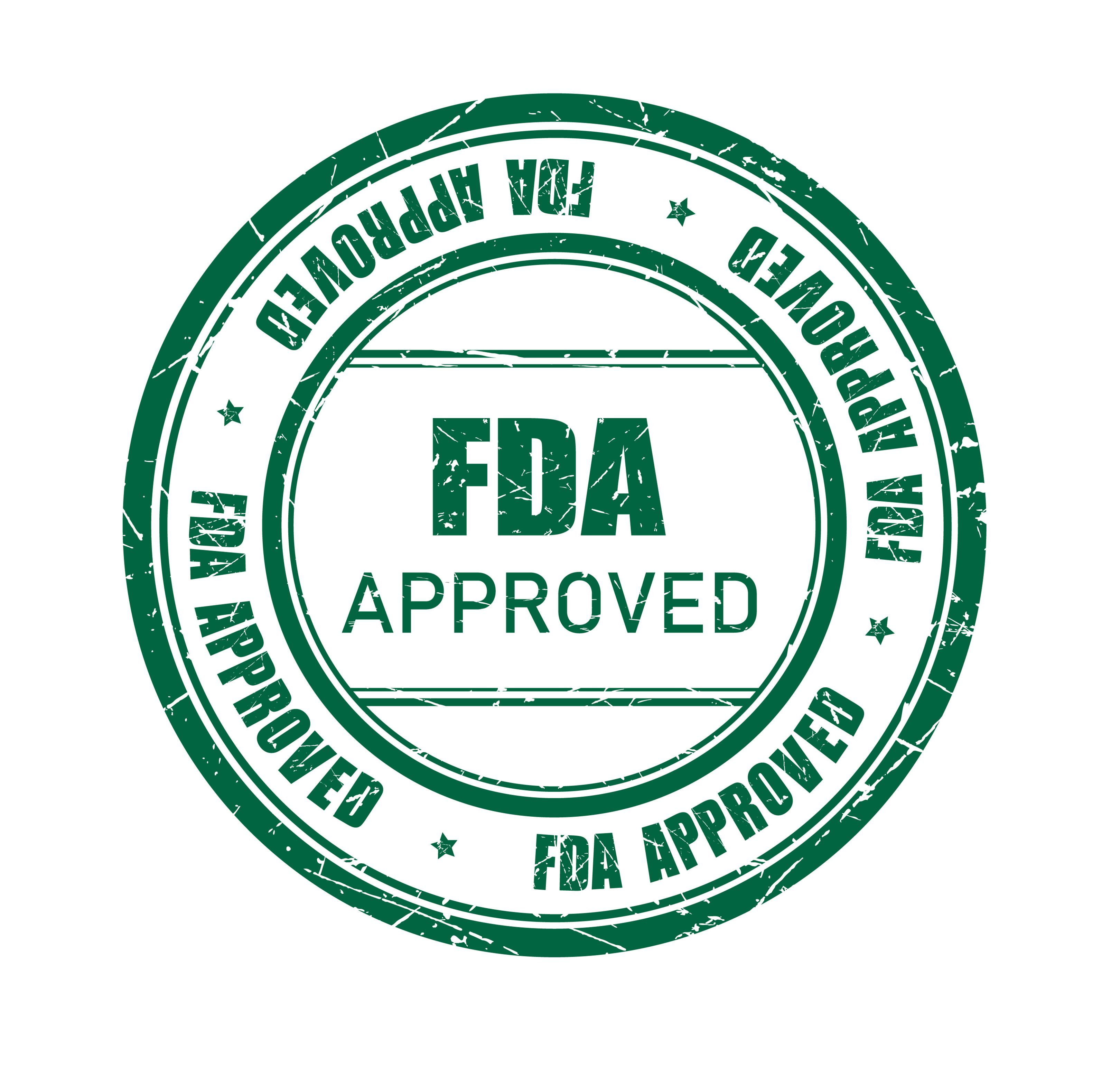- Center on Health Equity & Access
- Clinical
- Health Care Cost
- Health Care Delivery
- Insurance
- Policy
- Technology
- Value-Based Care
Epcoritamab Gets Label Expansion for Difficult-to-Treat R/R Follicular Lymphoma
The FDA approved epcoritamab-bysp to treat adults with relapsed or refractory (R/R) follicular lymphoma after 2 or more lines of systemic therapy.
FDA approved | Image credit: ArtEternal – stock.adobe.com

The FDA today expanded the label of epcoritamab-bysp (Epkinly), a subcutaneous T-cell engaging bispecific antibody, to treat adults with relapsed or refractory (R/R) follicular lymphoma following at least 2 lines of systemic therapy, Genmab announced.1
This now makes epcoritamab-bysp the first and only bispecific antibody approved in the US to treat both R/R follicular lymphoma and R/R diffuse large B-cell lymphoma (DLBCL).
Epcoritamab is an IgG1-bispecific antibody engineered to bind simultaneously to CD3 on T cells and CD20 on B cells, facilitating T-cell–mediated destruction of CD20+ cells.2 It was developed with Genmab's proprietary DuoBody technology, with DuoBody-CD3 aiming to guide cytotoxic T cells to target specific cell types and trigger an immune response.
The bispecific antibody had received an accelerated approval in May 2023 for the treatment of patients already treated with 2 or more lines of systemic therapy for DLBCL.3 A month later, topline results from the phase 1/2 EPCORE-NHL-1 trial (NCT03625037) were published, demonstrating an 82% overall response rate among patients with R/R follicular lymphoma who were treated with epcoritamab.4,5
EPCORE-NHL-1 is a multicenter, open-label study assessing the safety and preliminary efficacy of epcoritamab in various non-Hodgkin lymphoma types, with phase 1 focusing on dose escalation and phase 2a on dose expansion and optimization.2 This subcutaneous bispecific antibody is also under investigation for high-grade B-cell lymphoma, mantle cell lymphoma, marginal zone lymphoma, small lymphocytic lymphoma, and other non-Hodgkin lymphoma types.
Updated findings from the EPCORE-NHL-1 trial were presented at the 2024 American Society of Clinical Oncology (ASCO) Annual Meeting.6 In the pivotal cohort with 128 patients with R/R follicular lymphoma, researchers observed a complete response (CR) of 66% and a partial response (PR) rate of 17%. For the cycle 1 dose optimization cohort with 86 patients, the CR rate was 64% and the PR rate was 22%.
The minimal residual disease (MRD) negativity rate was 67% in the pivotal cohort and 64% in the dose optimization cohort. The researchers also noted a favorable correlation between MRD negativity and progression-free survival in all patients who were evaluated, including those analyzed on the first day of cycle 3. The median time to response for both cohorts was 1.4 months, and the median time to achieve CR was 1.5 months.
Epcoritamab joins the growing list of FDA-approved treatments for R/R follicular lymphoma. Other treatments approved this year alone include the chimeric antigen receptor (CAR) T-cell therapy lisocabtagene maraleucel (liso-cel; Breyanzi) approved in May, and combination zanubrutinib (Brukinsa; BeiGene) and obinutuzumab (Gazyva; Genentech) approved in March.7,8
Genmab and AbbVie are investigating epcoritamab both as a monotherapy and in combination therapies for various hematologic malignancies.2 This investigation consists of 3 phase 3, open-label, randomized trials:
- Comparing epcoritamab monotherapy with investigator's choice chemotherapy in patients with R/R DLBCL (NCT04628494)
- Evaluating epcoritamab with the rituximab, cyclophosphamide, doxorubicin hydrochloride, vincristine sulfate, and prednisone—known as R-CHOP—regimen in patients with newly diagnosed DLBCL (NCT05578976)
- Assessing a combination of epcoritamab with rituximab and lenalidomide in patients with R/R follicular lymphoma (NCT05409066)
References
- U.S. Food and Drug Administration grants second approval for EPKINLY (epcoritamab-bysp) to treat patients with relapsed or refractory follicular lymphoma. News release. AbbVie. June 26, 2024. Accessed June 26, 2024. https://www.prnewswire.com/news-releases/us-food-and-drug-administration-grants-second-approval-for-epkinly-epcoritamab-bysp-to-treat-patients-with-relapsed-or-refractory-follicular-lymphoma-302183824.html
- U.S. FDA accepts for priority review the supplemental biologics license application for epcoritamab (EPKINLY) for difficult-to-treat relapsed or refractory follicular lymphoma. News release. Genmab. February 26, 2024. Accessed June 19, 2024. https://www.globenewswire.com/news-release/2024/02/27/2835606/0/en/U-S-FDA-Accepts-for-Priority-Review-the-Supplemental-Biologics-License-Application-for-Epcoritamab-EPKINLY-for-Difficult-to-Treat-Relapsed-or-Refractory-Follicular-Lymphoma.html
- Caffrey M. Epcoritamab approved by FDA to treat R/R DLBCL. AJMC®. May 19, 2023. Accessed June 19, 2024. https://www.ajmc.com/view/epcoritamab-approved-by-fda-to-treat-r-r-dlbcl
- First-in-human (FIH) trial in patients with relapsed, progressive or refractory B-cell lymphoma (EPCORE NHL-1). https://www.clinicaltrials.gov/study/NCT03625037. Updated June 4, 2024. Accessed June 19, 2024.
- Caffrey M. Topline results show epcoritamab offers 82% response rate in R/R follicular lymphoma. AJMC. June 28, 2023. Accessed June 19, 2024. https://www.ajmc.com/view/topline-results-show-epcoritamab-offers-82-response-rate-in-r-r-follicular-lymphoma
- Pelosci A. Epcoritamab shows robust responses in R/R follicular lymphoma. Cancer Network®. June 7, 2024. Accessed June 19, 2024. https://www.cancernetwork.com/view/epcoritamab-shows-robust-responses-in-r-r-follicular-lymphoma
- Steinzor P. FDA grants accelerated approval for liso-cel for R/R follicular lymphoma, AJMC. May 16, 2024. Accessed June 19, 2024. https://www.ajmc.com/view/fda-grants-accelerated-approval-for-liso-cel-for-r-r-follicular-lymphoma
- McNulty R. Zanubrutinib plus obinutuzumab granted accelerated FDA Approval for R/R follicular lymphoma. AJMC. March 7, 2024. Accessed June 19, 2024. https://www.ajmc.com/view/zanubrutinib-plus-obinutuzumab-granted-accelerated-fda-approval-for-r-r-follicular-lymphoma
What Would Make Therapy Last? How About 2 Targets Each on B Cells and T Cells?
January 10th 2026The CEO of ModeX Therapeutics discusses MDX2003, a groundbreaking tetraspecific therapy that promises enhanced efficacy and safety in non-Hodgkin lymphoma treatment. This exchange appears in the January issue of Evidence-Based Oncology, the annual recap of the meeting of the American Society of Hematology.
Read More
Frameworks for Advancing Health Equity: Pharmacy Support for Non-Hodgkin Lymphoma
December 19th 2024Rachael Drake, pharmacy technician coordinator, University of Kansas Health System, explains how her team collaborates with insurance companies and providers to support treatment access for patients with non-Hodgkin lymphoma.
Listen
